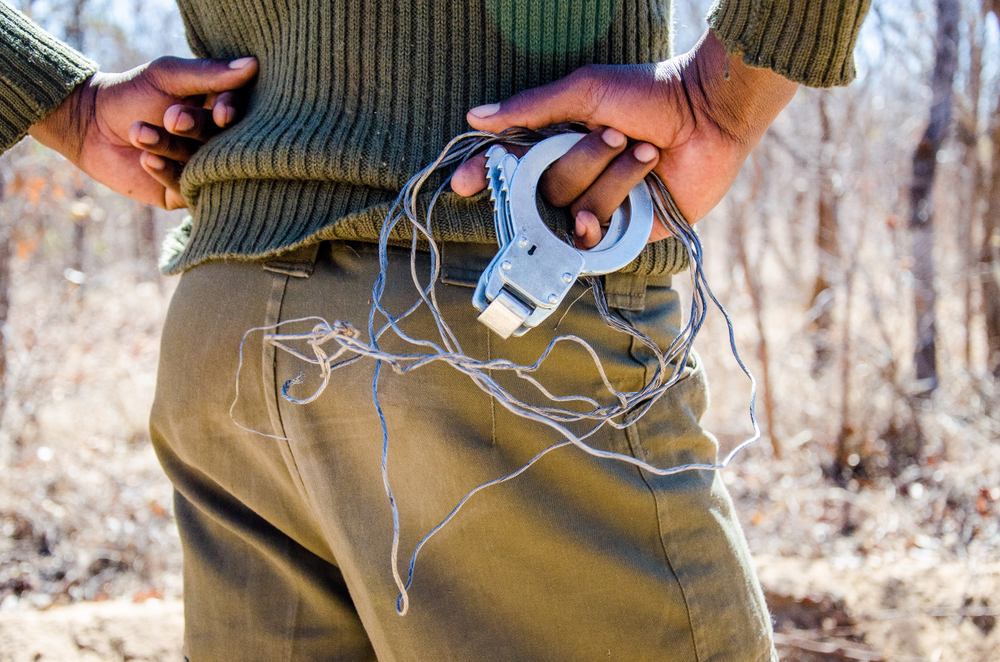
26 Nov Sniffer Rats and Muthi markets: 9 Innovative Ways Conservationists are Tackling Poaching
When it comes to tackling poaching, where do you even start? We’re told that for poachers, it’s often a matter of putting food on the table, which means they’re desperate to try every approach they can just in case it works. Conservation groups like the Endangered Wildlife Trust are starting to think the same, leaving no stone unturned in their quest to prevent crimes against wildlife and save precious and dwindling species. In the past year, they’ve embraced the following approaches;
- IN A POACHER’S FOOTSTEPS
Using similar methods they have for tracking wildlife; rangers in six important rhino reserves have started assessing poachers by looking at signs such as footprints, breaks in the fence line and evidence that people were sleeping in an area. These observations are analysed on a programme called CMore and inform the rangers where patrols should be deployed in a way that will best protect rhinos.
- SNIFFER RATS
It’s exceptionally challenging for law enforcement officers to keep a handle on what is coming and going at a shipping port. The Dar Es Salaam port in Tanzania, for example, handles over 12,500,000 tons of cargo per year. Searching this volume is a logistical nightmare. So conservationists turned to the rat, an animal that has been associated with ports and ships for hundreds of years.
They’ve started working with the African giant pouched rat to detect wildlife contraband in shipping ports. To date, they have successfully trained the rats to detect pangolins and rosewood – two species rampant in the illegal trade market. All 11 rats are identifying pangolin and rosewood samples at 80% accuracy on average, with very few false alarms. Ultimately, the rats will be able to detect pangolin scales hidden in a cargo of coffee beans.
- WILDLIFE CRIME SCENE INVESTIGATION
The Endangered Wildlife Trust also runs a training course to help with first responders at a wildlife crime scene. The modules cover arrests, search, seizure, collection of evidence and court testimony. They hosted 15 training courses over the last year and trained 300 participants from the Kruger National Park and protected areas in the Northern Cape.
- CONSERVATION CANINES
Tracker dogs are vital to the cause, and they actually fulfil a range of roles. The Endangered Wildlife Trust provides three different types of tracker dogs:
- Dogs that can follow the scent of humans to allow the anti-poaching unit to track poachers through the bush. In one of the reserves where a dog was deployed, no rhinos were poached in more than 372 days, while their neighbours all lost rhinos. Another reserve was losing more than ten rhinos a year. Tellingly, within three months of the dogs being introduced, a major arrest was made, and the reserve has now gone nine months without poaching.
- Dogs that have been trained to sniff out various items such as rhino horn, ivory, pangolin and ammunition.
- Dogs who support the Black Mambas, an all-female anti-poaching unit based at Balule Private Game Reserve near Hoedspruit. These women walk patrols of up to 20km per day, unarmed in Big 5 country. The dogs walk with them, providing an added layer of visible policing, and act as a first warning system for dangerous game in the area.
- INVOLVING THE COMMUNITY
Communities living near protected areas have had little chance to participate in decisions around rhino management in the past. Their continued marginalisation has negatively impacted their attitude towards conservation. But the Restorative Justice Project aims to enhance community involvement. This project has been included in the Rhino Action Plan developed by the Department of Environmental Affairs.
- SAVING THE CYCAD
Over the last year, The Endangered Wildlife Trust hosted an Advanced Cycad Law Enforcement Course to teach law enforcement officials to identify cycad species. There are now 10 more officials with specialised cycad law enforcement skills, who are ready to tackle cycad poaching in South Africa.
- TACKLING CYBERCRIME
The Endangered Wildlife Trust hosted the third Cybercrime training course with members from the South African Police Service and Provincial Nature Conservation. They spoke about the scope of the illegal wildlife trade and how to address this emerging practice.
- PROSECUTOR POP-WOW
For prosecutors in Southern Africa, it’s invaluable for them to get together and share best practices when it comes to tackling wildlife crime. They did this at a prosecutor workshop in March 2018 hosted by The Endangered Wildlife Trust. The aim was to get all the prosecutors from the different regions on the same page with regards to strengthening prosecutions and the sentencing of wildlife crimes and to improve international collaboration. There were senior wildlife prosecutors from South Africa, Mozambique, Botswana, Namibia and Swaziland. The workshop introduced the prosecutors to key initiatives such as victim impact statements that they can implement in prosecutions.
- MUTHI MARKET RESEARCH
Another unique approach was to use two students from Wits University to look into the illegal trade of pangolins locally. They conducted observational surveys for pangolins and pangolin products in muthi markets in five provinces (Gauteng, Limpopo, KZN, Limpopo and Mpumalanga) and Swaziland. They gathered an impressive amount of novel research material that has helped us better understand the demand for pangolins in southern Africa.



No Comments